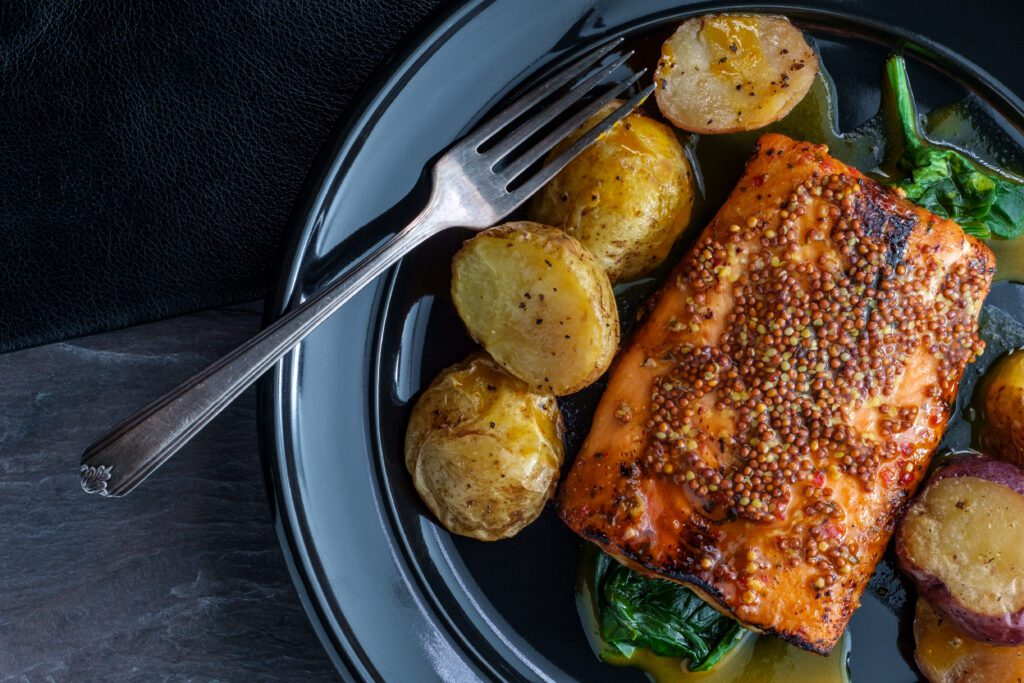Elevating Your Culinary Creations with Dijon Mustard: A Versatile Ingredient for Every Kitchen
In the world of culinary condiments, Dijon mustard stands out as a remarkably versatile and flavor-enhancing ingredient. This creamy, peppery mustard, with its roots in the French town of Dijon, has become a secret weapon in kitchens worldwide. Unlike its milder cousin, yellow mustard, Dijon mustard is a sophisticated blend of various mustard seeds – yellow, brown, and/or black – combined with white wine and vinegar, offering a unique sharpness and depth of flavor.

The Sophistication of Dijon Mustard
Dijon mustard owes its distinct taste to the careful selection of mustard seeds and the use of wine or vinegar. The brown mustard seeds used in Dijon are notably spicier than their yellow counterparts, contributing to its bold flavor. Dijon mustard is available in both smooth and grainy textures, each adding distinct qualities to a dish. The creamy smooth variety is sharper, adding significant flavor with just a small amount, while the grainy type, with intact whole mustard seeds, provides a milder taste with bursts of acidity.
Distinguishing Dijon from Other Mustards
The key differences between Dijon and other mustards lie in their flavor profiles, colors, and ingredients. Dijon mustard presents a sharp, quintessentially mustard taste with a moderate level of spiciness, making it suitable for a wide range of culinary uses. In contrast, yellow mustard, typically milder due to the use of yellow mustard seeds and vinegar, lacks the complexity of Dijon. Moreover, Dijon’s chestnut hue sets it apart from the vibrant yellow of standard mustards and the deeper brown of more pungent varieties.
Culinary Applications of Dijon Mustard
Dressings and Vinaigrettes: Dijon mustard can transform salad dressings and vinaigrettes, lending them a zesty edge. Its natural stabilizing properties help in emulsifying ingredients like olive oil, creating a more cohesive and flavorful dressing.
Marinades and Glazes: Incorporating Dijon mustard into marinades adds acidity and brightness, enhancing the flavor of meats, seafood, and vegetables. It also works well in sweet glazes, providing a balance of flavors.
Enhancing Other Condiments: Dijon mustard can be combined with ketchup, mayonnaise, and pickle relish to create flavorful spreads for burgers, hot dogs, and sandwiches. A combination of Dijon and mayonnaise, for instance, creates a perfect burger topping.
Breading: Dijon mustard can improve the breading process for meats, fish, and vegetables. It helps breadcrumbs or panko adhere better while adding an extra flavor dimension.
Classic Sauces: In classic sauces, especially in creamy pasta dishes like macaroni and cheese, a touch of Dijon mustard, much like salt and pepper, can elevate the overall flavor. It also works well in pan sauces for steak, fish, and pork chops.
Homemade Mayonnaise: When making mayonnaise, a bit of Dijon mustard not only speeds up the emulsification process but also adds a tangy balance to the richness of the mayonnaise.
Balancing Rich Dishes: Dijon mustard is an excellent accompaniment to fatty proteins such as pork roasts, brisket, and fish like salmon. It cuts through the richness and adds a complementary flavor profile.

In conclusion, the versatility of Dijon mustard extends far beyond being a mere sandwich spread. Its ability to enhance and balance flavors makes it an indispensable ingredient in modern cooking, capable of transforming everyday dishes into gourmet experiences.
